
Artificial Sweeteners Confuse Your Body: Storing Fat and Inducing Diabetes
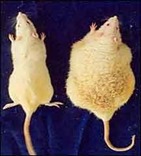
As noted in the featured video, there are currently five different artificial sweeteners on the market. The one you’re most likely to encounter is aspartame, which also tends to be the worst of the bunch. “Sweetener lesson 101: Avoid artificial sweeteners like the plague. While the mechanisms of harm may differ, they’re all harmful in…
Are GMOs a Humanitarian Technology?
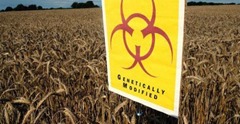
Genetically modified (GM) crops are going to feed the world. Not only that, supporters of GM technology say it will produce better yields than non-GM crops, increase farmers’ incomes, lead to less chemical inputs, be better suited to climatic changes, is safe for human consumption and will save the lives of millions. Sections of the…
Salt Water to Drinking Water with Electrodialysis and Solar Power
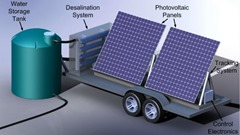
By inexpensively turning salt water into drinking water using sustainable solar power, a team from MIT in the US has not only come up with a portable desalination system for use anywhere in the world that needs it, but it’s just won the 2015 Desal Prize – a competition run by USAID to encourage better…
Fixing a Sick Chick

When we imported our last lot of eggs from Australia to establish a few egg-layer breeds in Tuvalu as part of the Six Chix Project we set to incubating the eggs, fingers crossed. The eggs were from Poultry Australia who were amazing with helping us meet the biosecurity requirements. That batch of 12 beautiful blue…
UN Calls for an End to Industrialised Farming
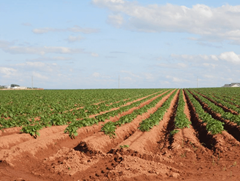
In 2013 the United Nations released a report indicating that the world’s food needs could be met through organic, local farms. The United Nations report stated that food security, poverty, gender inequality, and climate change can be addressed with a significant shift towards organic, localized farming. In contrast with industrialized farming, organic and local farms…
Do Toxins in Seafood Cause ALS, Alzheimer’s & Parkinson’s?
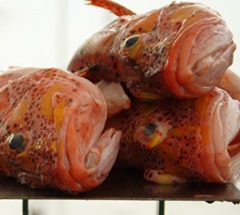
What started as the discovery of an unknown disease in Guam has spread to a line of ominous findings about some of our most debilitating conditions and potential toxins lurking in bodies of water around the world. Elijah Stommel, a neurologist at the Dartmouth-Hitchcock medical center in New Hampshire, often has to deliver bad news…
Permaculture: Renewing the Planet – Bill Mollison Interview
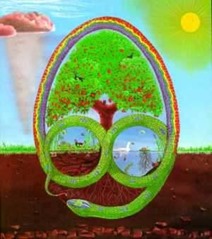
Permaculture creates living systems using cooperation with nature. Using its designs and principles we can create beautiful, practical, self-sustaining urban or rural environments. Using the diversity, stability and resilience of natural ecosystems, people can create real solutions – and put back more than they take from the Earth. Bill Mollison, the pioneer of Permaculture, provides…
Aspartame: By Far the Most Dangerous Substance Added to Most Foods Today
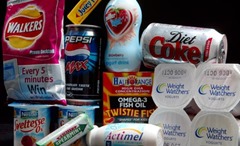
Aspartame is the technical name for the brand names NutraSweet, Equal, Spoonful, and Equal-Measure. It was discovered by accident in 1965 when James Schlatter, a chemist of G.D. Searle Company, was testing an anti-ulcer drug. Aspartame was approved for dry goods in 1981 and for carbonated beverages in 1983. It was originally approved for dry…
No Way to Stop Human Population Growth?

The planet’s large, growing, and over-consuming human population, especially the increasing affluent component, is rapidly eroding many of the Earth’s natural ecosystems. However, society’s only real policy lever to reduce the human population humanely is to encourage lower per capita fertility. How long might fertility reduction take to make a meaningful impact? We examined various…
Organic Antibiotics & Anti-bacterials
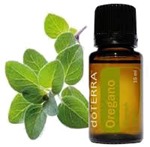
It’s always a good idea to have organic antibiotics on hand, especially if supplies are hard to find. 1. Oregano oil – herbal antibiotic choices. It is very potent- it take 1000 pounds of oregano to make just 1 pound of oil of oregano. Research says: Georgetown University Medical Centre tested oil of oregano in…
Newsletter
Topics
Atoll (4) Bleaching (5) Chickens (4) Climate (15) Corals (4) Damage (6) Disasters (10) Dredging (6) Ecosystems (14) Environment (9) Erosion (5) EVI (57) Fish (5) Food security (5) Funafuti (4) Geography (6) Hazards (34) Health (19) Human populations (6) Indicators (8) Nutrition (26) Resilience (10) Resistance (9) Resources & Services (28) Self-sufficiency (8) Shorelines (6) Toxins (4) Triggers (3) Vulnerability (13) Weather & Climate (8)Post Archives
- February 2020 (1)
- May 2018 (1)
- July 2017 (1)
- September 2016 (1)
- August 2016 (1)
- July 2016 (1)
- December 2015 (1)
- October 2015 (3)
- September 2015 (1)
- July 2015 (3)
- June 2015 (26)
- May 2015 (45)
- April 2015 (69)
- March 2015 (11)
- November 2010 (1)
- May 2008 (1)
- May 2007 (1)









